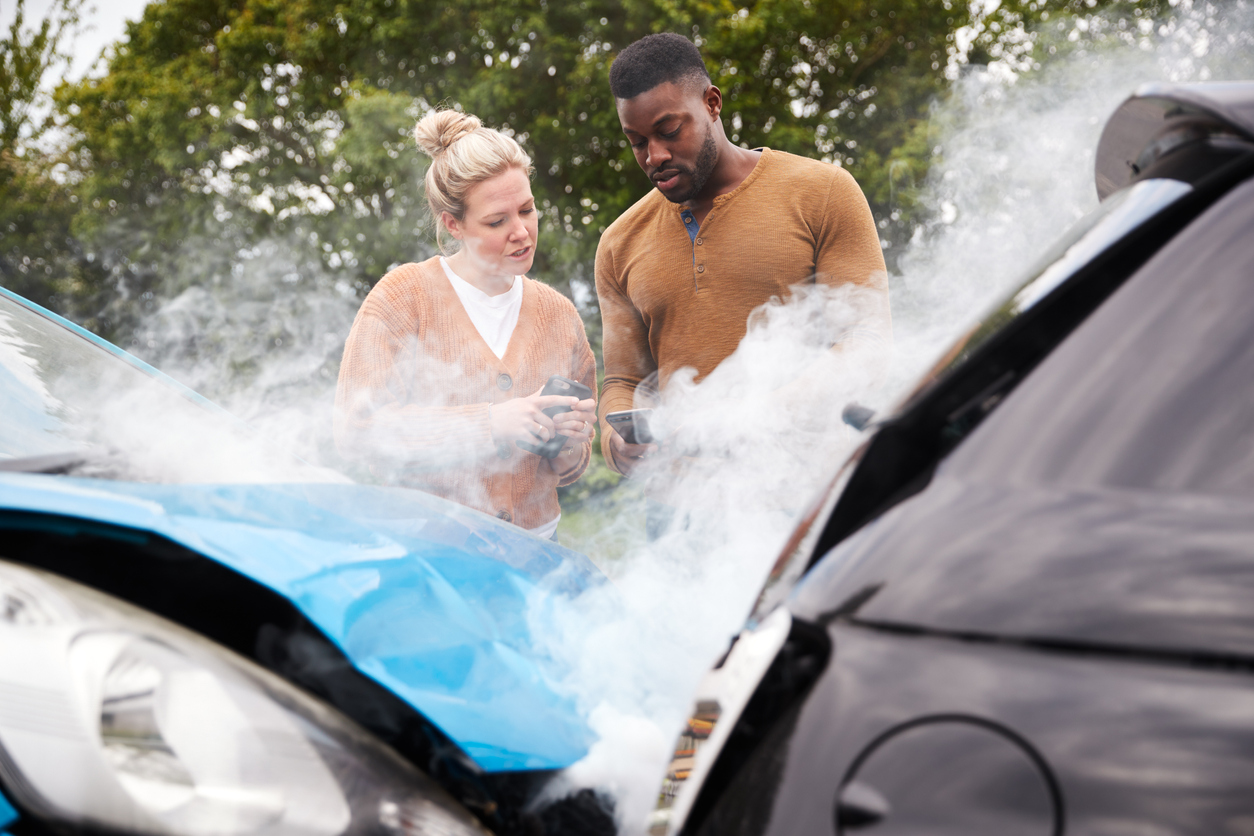All too often, rear-end collisions get dismissed as nothing serious. This is far from true. Rear-end collisions have the potential to have devastating, even fatal, consequences. Every measure to try and avoid rear-end collisions should be taken. To do this, let us take a look at the common causes of rear-end collisions in the hopes that this information will help all of us take the necessary safety precautions to avoid them on the road.
How Are Rear-End Collisions Typically Caused?
One of the most common causes of rear-end collisions is following the care in front of you too closely, or “tailgating.” Tailgating leaves little room for a driver to react should the car in front suddenly stop or slow down. The result is the tailgating vehicle slamming into the back of the other car, putting occupants of both vehicles at risk of injury.
Another common cause of rear-end collisions is driving while distracted. If a person is busy checking a phone or changing the channel on the radio, they are not fully paying attention to what is going on around them. It only takes a moment of distraction to block a person from seeing that a car in front of them has put on their brakes leading to a rear-end collision. Any type of distraction, whether it be visual, mental, or physical, will substantially increase the risk of collision.
Failure to obey traffic laws can also easily result in a rear-end collision. This includes failure to observe traffic signals. If the car in front of you has come to a stop at a stop sign or traffic light that you have failed to observe, a rear-end collision is likely to occur. Furthermore, failure to observe speed limits also increases the chances of a rear-end collision. Speeding makes it more difficult to stop in time to avoid colliding with the vehicle in front of you should you need to do so.
Anything that causes delayed reaction time in a driver is also a contributing factor in causing a rear-end collision. This includes driving while fatigued. When you are tired, your reaction time is significantly slowed. Additionally, driving while intoxicated or under the influence of drugs can greatly slow reaction time, increasing the risk of a collision such as causing a rear-end collision.
Let us all take steps to reduce the chances of rear-end collision by being alert, defensive drivers. Rear-end collisions may cause serious injury to any vehicle passenger involved. Some of the more common injuries associated with rear-end collisions include:
- Whiplash
- Neck injuries
- Shoulder injuries
- Head injuries
- Back injuries
- Broken bones
- Internal bleeding
- Internal trauma
- Knee injuries
Never dismiss a rear-end collision as a fender bender in an attempt to dismiss injuries you have sustained. Even if you are feeling just a little sore after an accident, you may have sustained substantial injuries that have yet to fully manifest themselves. Make sure you address your health care needs properly by seeking immediate medical attention following an accident, then contact the team of lawyers at Cooper Schall & Levy.
Pennsylvania Personal Injury Attorneys
At Cooper Schall & Levy we represent rear-end accident victims. We are here to fight for your legal rights so that you can focus on your health and well-being. Contact us today.


